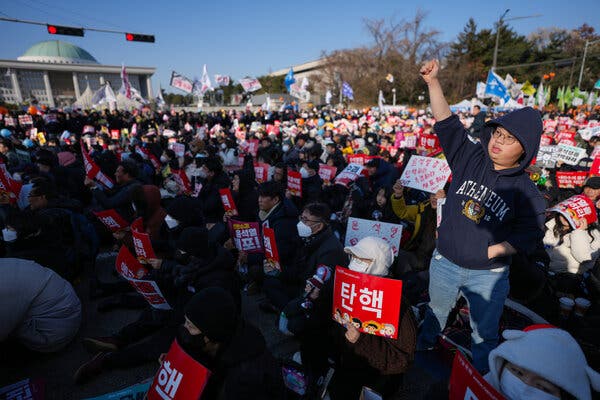A Muslim protest leader has become a symbol of a wide-ranging clampdown on opponents of Prime Minister Narendra Modi’s government.

The family gathers around the laptop in New Delhi once a week. Sometimes, relatives dial in from north India, or even the United States. They wait for Umar Khalid, 37, an Indian political activist, to appear on the screen from jail.
“How are you, Ammi?” Mr. Khalid boomed one recent day, addressing his mother, Sabiha Khanam.
“Everyone get in the frame, please,” he urged when he was unable to see a face but could hear a familiar voice.
In early 2020, Mr. Khalid became one of the most prominent figures of India’s biggest and most energized protests in a generation, a three-month outpouring of opposition to government proposals widely seen as anti-Muslim.
He was arrested later that year, and he has now languished in jail for four years without a trial, making him a symbol of the wide-ranging suppression of dissent under Prime Minister Narendra Modi. It continues unabated even with Mr. Modi’s reduced mandate after elections in the spring.
To silence opponents like Mr. Khalid, Mr. Modi’s government has increasingly turned to a draconian state security law that in the past was used only to quell violent insurgencies. Activists and other dissenters targeted under the law can be held in pretrial detention almost indefinitely. Some have died while awaiting bail. Even if they do move toward trial, defendants are often bogged down in years of legal battles.



